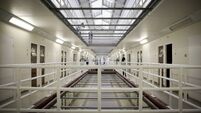Ireland avoids ‘catastrophic’ US tariffs as pharma duties decision due within two weeks

Pharmaceuticals are currently subject to a Section 232 inquiry in the US. Mr Harris said Brussels has advised that the process should conclude within two weeks, with pharmaceutical tariffs remaining at 0% until then. File picture
American tariffs on pharmaceuticals could be finalised within the next fortnight, as Tánaiste Simon Harris insisted Ireland avoided a “moment of catastrophe” thanks to an EU-US tariff deal.
Mr Harris, who also serves as minister for trade, convened the Government Trade Forum at Government Buildings on Friday morning to discuss the agreement reached between US president Donald Trump and European Commission president Ursula von der Leyen.














